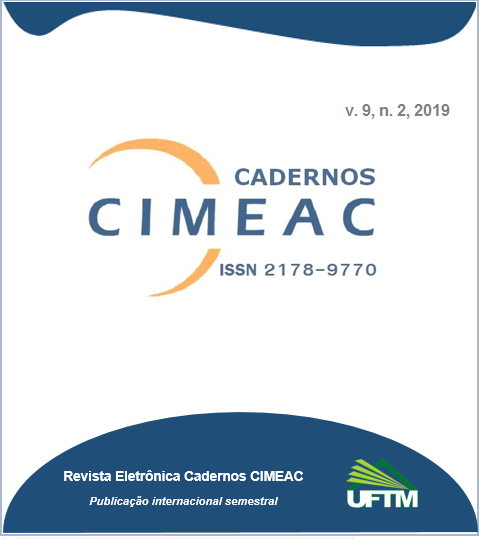O(a) pedagogo(a) e a educação não formal: aportes da história e de pesquisas acadêmicas / The pedagogue and non-formal education: contributions from history and academic research
DOI:
https://doi.org/10.18554/cimeac.v9i2.3599Resumen
Desde o século XX, no mundo ocidental, a educação das pessoas é conduzida por um agente principal, a escola pública. Segundo diferentes autores, este espaço educacional, tem sido o âmbito hegemônico de atuação dos pedagogos e das pedagogas até início do século XXI, época em que o campo de atuação se diversifica. Embora a escola continue sendo o espaço educacional central onde estes se desenvolvem, existem outros como Organizações não Governamentais (ONGs), sindicatos, movimentos sociais, empresas, hospitais, a mídia, instituições culturais, educação especial, etc. Com o intuito de conhecer mais esse campo e assim contribuir na reflexão sobre a formação dos Pedagogos desenvolvemos uma pesquisa que teve como objetivo adentrar na história da educação não formal e na produção acadêmica sobre o tema. Para seu desenvolvimento a metodologia percorreu o seguinte itinerário: realizamos uma pesquisa bibliográfica e logo após um levantamento das produções, com o objetivo de conhecer o que se tem investigado sobre o objeto de estudo. Concluiu-se que esse mapeamento nos proporcionou identificar a incipiência de pesquisas sobre a temática da educação não formal.
Palavras-chave: Educação não formal; Formação do pedagogo; Estado da arte.
ABSTRACT: Since the 20th century, in the western world, the education of the people is led by a principal agent, the public school. According to different authors, this education space, has been the hegemonic scope of action of teachers and of him until the beginning of the 21st century, at which time the field if diversifies. Although the school remains the central educational space where they develop, there are others such as non-governmental organizations (NGOS), trade unions, social movements, companies, hospitals, the media, cultural institutions, special education, etc. In order to know more about this field and thus contribute to the reflection on the formation of the educators have developed a research that aimed to penetrate in the history of non-formal education and academic production on the theme. For the development of the methodology has traveled the following itinerary: We performed a bibliographic search and soon after a survey of production, with the goal of knowing what has investigated about the object of study. It was concluded that this mapping gave us identify the low of researches about the subject of non-formal education.
Keywords: Non-formal education; Training of the Pedagogue; State of the art.
Descargas
Publicado
Número
Sección
Licencia
Os autores que publicam nesta revista concordam com os seguintes termos:
(a) Não cobramos dos autores para a publicação neste periódico.
(b) Autores mantém os direitos autorais e concedem à revista o direito de primeira publicação, com o trabalho simultaneamente licenciado sob a Licença Creative Commons que permite o compartilhamento do trabalho com reconhecimento da autoria e publicação inicial nesta revista.
(c) Autores têm permissão e são estimulados a difundir e a distribuir a versão publicada de seu trabalho online (ex.: em repositórios institucionais ou na sua página pessoal) após o processo editorial, já que isso pode aumentar o impacto e a citação do trabalho publicado (Veja O Efeito do Acesso Livre).
* * *
AUTHORS COPYRIGHT AND PUBLISHING RIGHTS
Authors who publish with this journal agree to the following terms:
(a) This journal does not charge authors for publication.
(b) Authors retain copyright and grant the journal right of first publication with the work simultaneously licensed under a Creative Commons Attribution License that allows others to share the work with an acknowledgement of the work's authorship and initial publication in this journal.
(c) For authors whose articles have been accepted: authors are permitted and encouraged to post their work online (e.g., in institutional repositories or on their website) after the publication of the text in Cadernos CIMEAC, as it can lead to productive exchanges as well as earlier and greater citation of published work (See The Effect of Open Access).

 10.18554/cimeac
10.18554/cimeac

